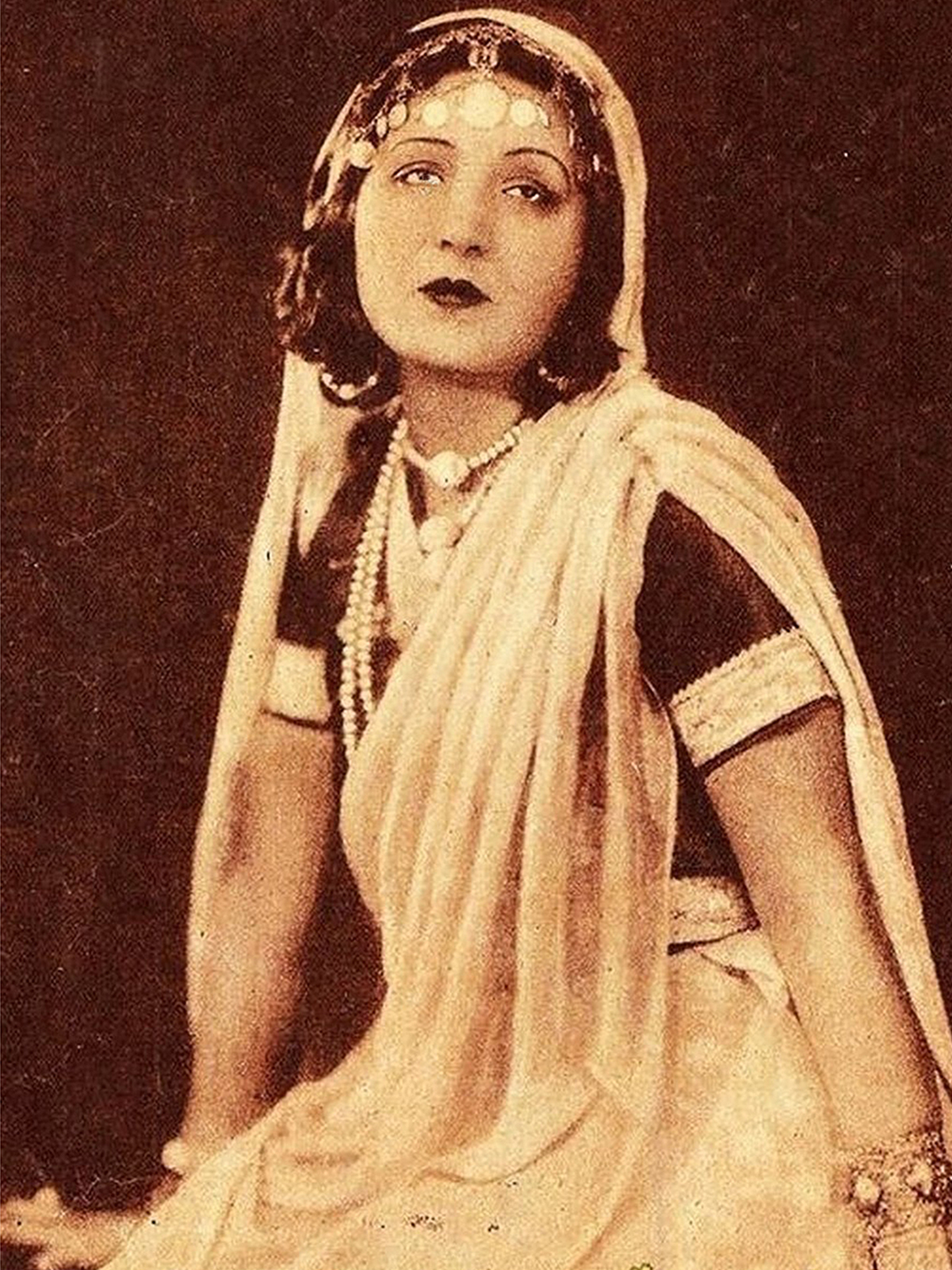
- Film
A Century of Egyptian Cinema
Egypt is among the oldest producers of films in the world. Egyptian cinema was born in 1896 when the Lumière Brothers’ screened a short film in Alexandria, only a year after its premiere in France. Since then, over 4,000 films have been produced in Egypt.
Even though many silent shorts were produced in Egypt as early as 1897, some believe the actual beginning of the Egyptian film industry was 1907 when a short documentary was produced, but most agree that it really began in 1927 with the first Egyptian feature film Laila, produced by and starring legendary Egyptian actress, director, producer and screenwriter Aziza Amir, considered by many to be the Godmother of Egyptian cinema. Amir went on to produce and star in twenty films. She inspired many other Egyptian women to become filmmakers and even start their own production companies, including Bahija Hafez and stage actress Fatma Rushdi – known as the Sarah Bernhardt of the East. Many people outside of Egypt do not know that women played a very important role in the development of Egyptian film. They were true pioneers.
In the early 20th century, Egypt was beginning to seek independence from the British Empire, leading to the rise of Egyptian nationalism, both politically and culturally. Early silent films were subtitled in French, but by 1912 a popular movie house began screening films with Arabic subtitles, and the people of Alexandria began to demand that all films be subtitled in Arabic. In 1925 the Misr Corporation for Dramatic Arts and Film was created as the first major film production company and in 1935 it became Studio Misr, becoming Egypt’s equivalent to the Hollywood studios. Movie theaters began to flourish in Egypt, and by 1926 more than 85 existed in the country.
Then in 1931 talkies entered the scene and this began what is considered The Golden Age of Egyptian Cinema – from the 1930s to the 1960s. Egypt even produced its first musical in 1933, The White Rose, directed by Mohammad Karim, featuring popular Egyptian singer Mohamed Abdel Wahab in his film debut. The musical film genre took off and became a major hit in Egypt throughout the 1930s and 1940s.
During this Golden Age, hundreds of films across all genres were produced, many becoming cinema classics. Among these were The Will produced in 1939, written and directed by Kamal Selim and starring Fatma Rushdi and Hussein Sedki. One of the first films to portray life in the slums of Egypt, it is considered by many including the Cairo International Film Festival to be the best Egyptian film ever made. Other notable films in this period are Cairo Station (1958) directed by the preeminent Egyptian filmmaker Youssef Chahine, El Haram (1965) known in English as The Sin, a social drama directed by Henry Barakat and starring Faten Hamama. Faten is the most honored actress in the Middle East and was named Star of the Century. She and Omar Sharif were married in 1955, an on-screen and off-screen partnership that lasted decades.
In the middle of this, politics once again became a major factor. The 1952 revolution that saw the overthrow of King Farouk and the installation of Gamal Abdel Nasser as President (1956-1970), had a great impact on the industry. Nasser was a fan of films and knew how to politicize them for his purposes. He nationalized the industry. Because the government also provided funding, many of the most notable Egyptian films were produced in this period. Egypt became the third-largest producer of films in the world. However, after the denationalization of the industry in the 1970s, the quality and volume of films began to decline, with films being produced inexpensively to reap higher profit margins. It was not until the 1990s that Egyptian film began to see a resurgence in quality and international recognition.
If we talk about modern Egyptian cinema, we must acknowledge the contribution of its most well-known director, Youssef Chahine, whose first film was Father Amine in 1950, and the final film was Chaos, This Is in 2007. His films won many festival awards including at the Cannes Film Festival. One of his films, Cairo Station (1958), was the first Egyptian film submitted for Oscar consideration. the first of four of his films submitted for consideration. Egypt’s most famous actor, Omar Sharif, was awarded Golden Globes for Lawrence of Arabia (1962) and Dr. Zhivago (1966).
Today the Egyptian film box office is booming. In 2019 the highest-grossing Egyptian film of all time The Blue Elephant 2 earned US $6,570,362.
There is however a persistent scarcity of funding for these films, so small independent art-house films have flourished, exhibited at both local and international festivals and now on streaming services. Just this year, Egyptian director Omar Al-Zuhairi’s film Feathers (2021), an Egyptian-French-Dutch-Greek production, won the Nespresso Grand Prize at the Cannes Film Festival’s Critics’ Week.